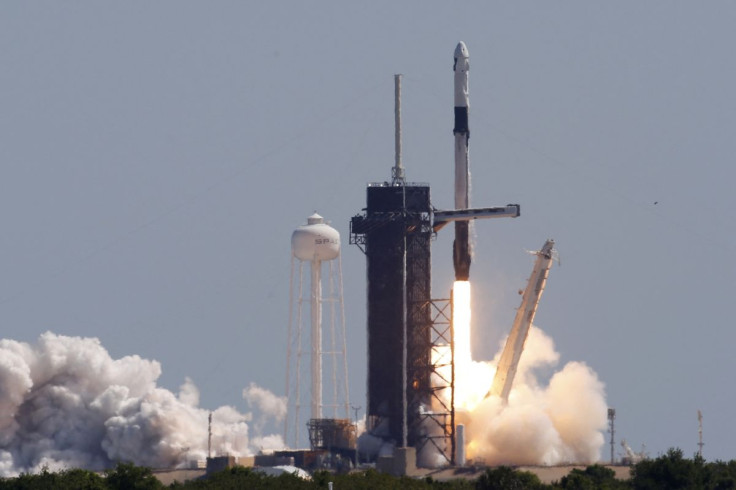Russia Pulls Out Of International Space Station Amid Mounting Sanctions: Report
KEY POINTS
- Rogozin previously warned of halting ISS work unless the sanctions are lifted
- Larry Connor said Russian cosmonauts he worked with recently were 'very cordial'
- The ISS is one of the few and rare aspects of cooperation between Russia and the U.S.
Russia will reportedly stop work on the International Space Station (ISS) in response to sanctions over its ongoing invasion of Ukraine. The country previously threatened to put an end to ISS missions.
“The decision has been taken already, we’re not obliged to talk about it publicly,” Dmitry Rogozin, the chief of Russian space agency Roscosmos, said, Bloomberg reported, citing state media agencies Tass and RIA Novosti. Rogozin reportedly added that Roscosmos will “inform our partners about the end of our work on the ISS with a year’s notice” as part of its international obligations.
“The decision has been taken already, we’re not obliged to talk about it publicly” https://t.co/g8NWBy65HD
— Bloomberg (@business) April 30, 2022
It is worth noting that the ISS was one of the few and rare aspects of cooperation between Russia and the United States, Axios reported. Cooperation between the two nations had been hostile before Russia invaded Ukraine in February, but work at the ISS continued until Rogozin threatened to stop work at the space station earlier last month.
At that time, Rogozin said in a social media post that the sanctions were meant to “kill Russian economy and plunge our people into despair and hunger, to get our country on its knees,” the Guardian reported. Rogozin said that the sanctioning nations “won’t succeed in it, but the intentions are clear.” He went on to warn that “restoration of normal relations between the partners” at ISS “and other projects is possible only with full and unconditional removal of illegal sanctions.”
The first all-private mission to the International Space Station successfully splashed down, but not before the US astronauts needed to borrow something from Russian cosmonauts while in space. Watch AX-1 pilot Larry Connor explain: https://t.co/Cf7qqGUIYx
— CNN (@CNN) April 29, 2022
The news came days after a private pilot who worked with Russians at the ISS on the first all-private mission described his interactions with Russian cosmonauts. Larry Connor, the pilot of Axiom Space’s AX-1 mission, told CNN that the “Russians were very cordial, very accommodating,” adding that the crew of the recently wrapped-up AX-1 mission “operate as one team up there.”
Connor explained that there was one day when the toilet designated for U.S. astronauts was “down for a couple of hours,” and the Russian cosmonauts said, “'Hey, come on over and use ours.’”
Finally, Connor said there was no time during the joint private mission wherein the war in Ukraine was mentioned. For Connor, astronauts working together, regardless of their citizenship, must “put those differences aside, severe as they may be, and be one cohesive unit.”
Splashdown of Dragon confirmed pic.twitter.com/m0C7GjwhYh
— SpaceX (@SpaceX) April 25, 2022
The U.S. has imposed the following sanctions against Russia after it infiltrated Ukraine on Feb. 24:
- Ban of new investments in Russia
- Sanctions against Russia’s Alfa Bank and Sberbank
- Sanctions against some key Russian government officials
- Ban on exporting dual-use goods (these are products with purposes serving both the military and civilian communities)
- Ban on all Russian flights
- Sanctions against Russian oligarchs considered to have close ties with the Kremlin
- Freezing of assets belonging to Russian President Vladimir Putin and Foreign Minister Sergei Lavrov
- Ban on all Russian oil and gas imports
- Blocking Russia from making debt payments using $600m of its U.S. banks holdings

Axiom's four-man team lifts off, riding atop a SpaceX Falcon 9 rocket, in the first private astronaut mission to the International Space Station, from Kennedy Space Center in Cape canaveral, Florida, U.S. April 8, 2022. Reuters / THOM BAUR
© Copyright IBTimes 2024. All rights reserved.






















